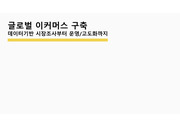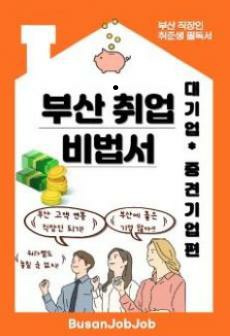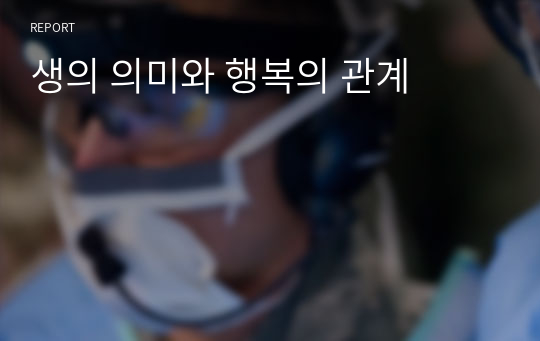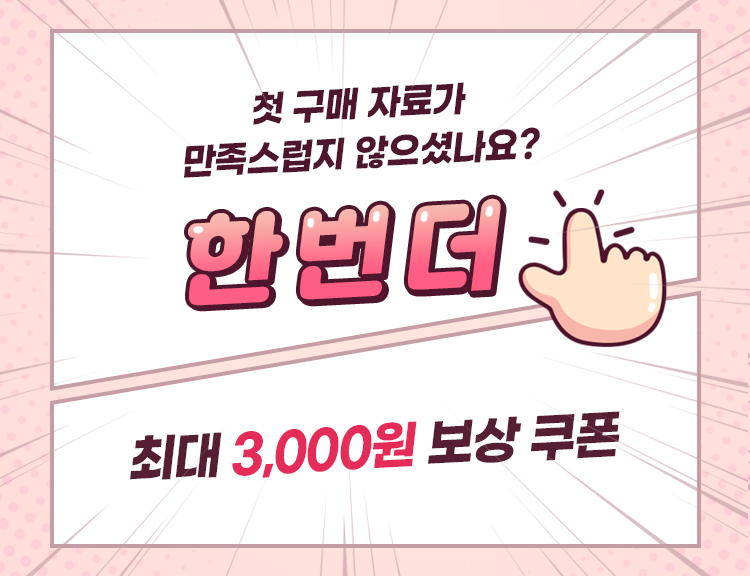목차
Ⅰ. 서 론1. 연구의 필요성
2. 연구의 목적
3. 용어의 정의
Ⅱ. 문헌고찰
1. 대학생의 생의 의미
2. 대학생의 행복
Ⅲ. 연구방법
1. 연구설계
2. 연구대상
3. 연구도구
4. 자료수집기간 및 방법
5. 자료 분석 방법
Ⅳ. 연구 결과
1. 대상자의 일반적 특성
2. 대상자의 생의 의미와 행복
3. 대상자의 일반적 특성에 따른 생의 의미와 행복
4. 대상자의 행복에 영향을 미치는 요인
Ⅴ. 논 의
Ⅵ. 결론 및 제언
Ⅶ. 참고문헌
Ⅷ. 설문지
본문내용
행복이란 기쁨을 느끼는 상태 또는 긍정적인 것으로 삶의 만족을 경험하는 것으로 삶의 만족도, 삶의 질, 심리적 안녕감, 주관적 안녕감과 같은 용어로 쓰이고 있다.(Lee SJ, Ahn SH , 2005) 행복은 기본적인 권리이기 때문에 인간들은 추구하면서 살아가고 있지만 행복은 공동적인 요소에서 행복을 느끼는 것이 아니라 자신의 성향과 주변 환경에 따라 조금씩 다르게 느끼고 있다.(Lee OS , 2016) 이런 행복을 느끼게 하는 요인들 중 행복을 많이 느낀다고 평가된 것은 주관적 요소에서 자신의 성향에 맞게 살아가고 자신이 추구하는 방향으로 살아갈 수 있는 만족스러운 삶이었다.(Lee OS , 2016) 누구나 행복을 증진시키기 위해 이러한 영향을 받지는 않지만 대부분이 그렇게 느끼고 있기 때문에 먼저 행복을 느껴보지 못한 사람에게는 자신이 추구하고 원하는 가치나 덕목 등을 찾아내는 것이 과제라고 볼 수 있다.(Lee OS , 2016) 이로서 생의 의미를 찾아내는 행위 등이 행복을 증진 시킬 수 있는 방법 중 하나임을 알 수 있다.생의 의미는 주관적이고 추상적인 성질을 가지고 있어 개인마다 다르게 정의하고 있다.(Lee OS , 2016) 선행연구에서는 인간답게 존재하기 위해서 인간의 참된 본질을 실현해 가는 것(Frankl VE , 1946), 또는 자신이 포함된다고 생각하는 세계에서 가치와 의미가 있다고 믿는 자신의 생(Jang SO, Burbank PM , 2000)을 이론적 정의라 하고 있다. 정의와 같이 자신의 생을 가치 있게 만들기 위해 생의 의미를 찾아감으로써 삶에 흥미와 긍정적인 자세를 가지게 되고 자신의 삶에 대해 구체적이고 방향성을 찾아가면서 건강한 삶을 만들어 갈 수 있다.(Kim GH, Kim KH , 2009) 이런 행동을 통해 자신이 원하는 것을 알고 방향성을 알아가면서 삶이 만족하게 되고, 행복의 증진될 수 있다는 관계가 성립될 수 있다.
참고 자료
Ahn, S. A., & Sim, Y. M. (2015). A study on the mediation effects of depression and self-efficacy on college students’ stress and subjective happiness. Journal of the Korea Academia-Industrial cooperation Society, 16(10), 7021-7033.Argyle, M. (2001). The psychology of happiness. New York: Taylor& Francis Incorporated.
Baumeister, R. F., & Vohs, K. D. (2002). The Pursuit of Meaningfulness in Life. In C. R. Snyder, & S. J. Lopez (Eds.), The handbook of Positive Psychology (pp. 608-628). New York: Oxford University Press.
Byeom, G. B. (2006). Study on the relationship of self-control, self-esteem, and subjective well-being. Unpublished master's thesis. KonYang University, Nonsan.
Choi, M. S. (2011). The relationship of self-esteem, mental health, perceived social support & social avoidance and distress according to purpose in life. Korean Journal of Clinical Psychology, Health, 16(2), 363-377.
Choi, R. G. (2009). Influence of dispositional optimism and the level of purpose in life on career identity and career preparation behavior in new generation soldier's. Unpublished master's thesis. Dankook University, Gyeonggi.
Crumbaugh, J. C., & Maholick, L. T. (1964). Manual of instructions for Purpose-in-Life-Test. Lafayette. IN: Psychometric Affiliates.
Erikson, E. H. (1968). Identity: Youth and crisis. New York: Norton.
Frankl, V. E. (1959). Man's search for meaning. New York: Pocket
Frankl, V. E. (1963). Man’s Search for Meaning: An Introduction to Logotherapy. New York: Washington Square Press.
Fredrickson, B. L. (2004). The broaden-and-build theory of positive emotions. The Journal of Philosophical Transactions of the Royal Society of London, 359, 1367-1377.
Fredrickson, B. L., & Joiner T. (2002). Positive emotions trigger upward spirals toward emotional well-being. Psychological Science, 13, 172-175.
Go et al. (2010). The relation between nursing college students? major satisfaction and their nursing professionalism. Journal of Ewha Academy of Nursing, 45, 29-44.
Hong, S. S., Hong, J. A., & Jun, W. H. (2013). Spirituality and stress of clinical practice among nursing students. The Journal of the Korea Contents Association, 13(6), 361-369.
Jang, G. L. (2013). The effects of communication level and emotional intelligence on subjective happiness of parents-children who are late for college. Unpublished mater's thesis. Hankuk University of Foreign, Seoul.
Jang, S. H. (2015). A structural snalysis on middle-aged adult's meaning in life and It's related variables. Pusan Catholic University, 1-105.
Jang, S. H., Lee, H. R., Yeu, H. N., & Choi, S. O. (2014). The effects of posttraumatic growth and meaning in life on health promotion behavior in cancer patients. Asian Oncology Nursing, 4(2), 100-108.
Jang, S. O., & Burbank, P. M. (2000) Meaning in life among the elderly. Journal of Korean Academy of Nursing. 30(2), 27-259
Jo, K. H., & Kim, Y. K. (2010). Understanding the meaning of happiness expressed by nursing students through college artworks: A content analysis. The Journal of korean Academic Society of Nursing Education, 16, 61-71.
Jo, K. I., Park, H. S. (2011). Predictors of subjective happiness for nursing students. Journal of Academia - Industiral Technology, 12(1), 160-169.
Jo, M. J. (2016). The factors related to happiness among nursing students. The Journal of Korean Academic Society of Nursing Education, 22(2), 182-190.
Jo, M. K. (2015). The relationships among happiness, happiness promotion activities and self-reflection in the convergence society. Journal of Digital Convergence, 13(7), 305-313.
Jung, M. H. (2013). The effects of university student's happiness on the decision of rational paths. Unpublished mater's thesis. Keimyung University, Daegu.
Kim, B. R., & Sin, H. C. (2010). The influence of ego-resilience and meaning in life on posttraumatic growth: mediating effect of searching for meaning and presence of meaning. The Korean Journal of Counseling and Psychotherapy, 22(1), 117-136.
Kim, C. G. (2013). Effects of perceived death and self-esteem on meaning in life among university students. Journal of Korean Society of public Health Nursing. 27(3), 539-550.
Kim, D. J., & Lee, J. S. (2014). Influence of ego-resilience and self-efficacy on satisfaction in major of nursing student, The Korean Journal of Health Psychology 20(2), 244-254.
Kim, E. M,, Yang, Y. H., Lee, H., & Yu, M. (2016). Factors influencing subjective happiness in korean nursing students. The Journal of Korean Academic Society of Nursing Education, 22(3), 294-303.
Kim G. H., & Kim K. H. (2012). Factors related to happiness in first year women nursing students. Journal of Korean Academy of Psychiatric and Mental Health Nursing, 21(2), 149-157.
Kim, G. H., & Kim, K. H. (2009). Effects of a self-esteem promotion program on self-esteem and meaning of life among female freshmen. Journal of Korean Academy of Psychiatric and Mental Health Nursing, 18(4), 431-438.
Kim, G. H., & Hha, H. S. (2000). A study of department satisfaction factors of undergraduate students. Korea Journal of Counseling, 1(1), 7-20.
Kim, G. R. (2013). The effect of nurse's self-respecting depressed depression on happiness. Unpublished master's thesis. Ewha Womans Unicersity, Seoul.
Kim, H. J. (2009). The influence of positive emotion, flow, and meaning in life of university student upon their happiness. Unpublished master's thesis. Keimyung University. Daegu
Kim, I. J. (2006). Positive psychology. Seoul: Mulpure .
Kim, J. K. (2014). A review study on nursing student’s stress for improvement of nursing education. Journal of Korean Academic Society of Nursing Education, 20(1), 47-59.
Kim, K. M., Ryu, S. A., & Choi, I. C. (2011). The effect of meaning in life on happiness and health in late life. Journal of Korean Psychological Association, 30(2), 23-503.
Kim, K. R. (2013), Influence of self-esteem, flow and depression of the psychiatric nurses’ upon their happiness. Unpublished master’s thesis. Ewha Womans University, Seoul.
Kim, M. S., & Han, Y. S. (2006). The development of happiness index for korean. The Korean Journal Association for Survey Research, 7(2), 1-38.
Kim, M. S., Kim, H. W., Han, Y. S., & Lim, J. Y. (2003). Explorations on the happy life of koreans on the bases of the irsocial structural variables. The Korean Journal of Health Psychology, 22(2), 1–33.
Kim, M. S., & Lim, J. Y. (2003). The structure of good life and the relationship with subjective well-being among college students. The Korean Journal of Woman sychology, 8(1), 83-97.
Ko, H. J., & Lee, M. G. (2013). The Effects of Flow on Stress and Well-being in Korean University Students: The Moderating Effect of Flow and the Mediating Effect of Coping Strategies(Research stress NO. 21(4), 383-292). Seoul: Guro Hospital, Korea University.
Koh, Y. M. (2010). The effects of happiness enhancement counselling-38 program based on positive psychology on children's happiness and depression. Unpublished master's thesis. Seoul National University of Education, Seoul.
Koo, J. S. (2005). The relationship among personality, efficacy beliefs, life experiences and subjective well–being: Indigenous psychological analysis. Unpublished doctoral dissertation. Chung-Ang University, Seoul.
Kwon, K. O. (2009). The Effects of the belief in the contribution of arbitrary control among the happiness determinants on the euphoria of university students. Unpublished mater's thesis. Keimyung University, Daegu.
Kwon, S. M. (2008). Positive psychology. Seoul: Hakjisa.
Kwon, S., Kim, G. H., & Lee, H. S. (2006). Validation of the Korean version of gratitude questionnaire. Journal of Korean Psychological Association, 11(1), 177-190.
Lee, J. H., & Lee, H. K. (2011). The mediating role of meaning in life in the relationship between religious coping styles and post traumatic growth among christians. Korean Journal of Religious Education, 36, 92—171.
Lee, M. H. (2014). The influence of positive emotions, implications of life, achievement and positive relations among university students on happiness. Unpublished mater's thesis. Keimyung University, Daegu.
Lee, O. S. (2017). The Relationships between Meaning in Life and Happiness among University Students. Unpublished master's thesis. Catholic University of Pusan, Pusan.
Lee, S. J, & Ahn S. H. (2005). What is happiness: A review of the studies on happiness. Research Psychology, 4. 123-143.
Lyubomirsky, S.(2001). Why are some people happier than others?√The role of cognitive and motivational processes in well–being. Journal of American Psychology, 56, 24–239.
Park, H. S. (2012). The relationship between happiness and yangsaeng among university students in the republic of korea. Journal of East-West Nursing Research, 18(1), 31-39.
Park, H. S., Koo, H. Y., & Won, S. H. (2004). Sexual function and satisfaction with life in woman and their predictors. Journal of Korean Academy Psychiatric Mental Health Nursing, 13, 505–513.
Park, H. S., & Kwon, B. S. (2006). Satisfaction with life and it's predictors of college students. Journal of Korean Academy of Psychiatric and Mental Health Nursing, 15(1), 48-56.
Nam, M. H., & Lee, M. R. (2014). Factors influencing subjective happiness index of health behavior, self esteem and major satisfaction by nursing students. Journal of Digital Convergence, 12(10), 363-374.
Park, K. H. (2005). The subjective well–being of under graduate students and associated variables. Unpublished master's thesis. Yonsei University, Seoul.
Park, S. Y. (2012). A theoretical review with clinical implications for the meaning in life. Korean Journal of Psychology: General, 31(3), 741-768
Park, S. Y. (2013). The relationship between meaning in life and psychological health : the development of the multidimensional meaning in life scale and a meaningfulness enhancement program. Unpublished doctoral dissertation. Seoul University, Seoul.
Hermans, Hubert J. M. (1989). The meaning of life as an organized process. Psychotherapy: Theory, Research, Practice, Training, 26(1), 11-22
Park, S. Y., & Lee, H. G. (2013). Determinants of subjective well-being among korean adolescents. Research of Stress, 21(2), 73-84.
Park, Y. S., & Kim, U. C. (2006). Factors influencing quality of life for individuals and korean society: Indigenous psychological analysis across differentgener at ions. Korean Journal of Psychological and Social Issues, 12, 161–195.
Pinquart, M. (2002). Good news about the effects of bad old-age stereotypes. Experimental Aging Research, 28, 317–336.
Shin, J. Y. (2007). Development of a happiness scale for the korean college students. Unpublished master's thesis. Chung-Ang University, Seoul.
Shin K. I., Lee J. J., Choi S. O., & Kim S. N. (2005). Meaning in Life of College students: Q Methodological Approach. Korean Journal of Youth Studies, 12(4), 269-294.
Won, D. R., Kim, K. H., & Kwon, S. J. (2005). Validation of the Korean version of Life Meaning Scale: The effect of meaning in Life on happiness and health in Late Life. Korean Journal of Clinical Psychology: Health, 10(2), 211-225.
Wong, P. T. P., & Fry, P. S.(1998). The human quest for meaning: A handbook of psychological research and clinical applications. Mahwah, NJ: Lawrence Erlbaum Associates.


























